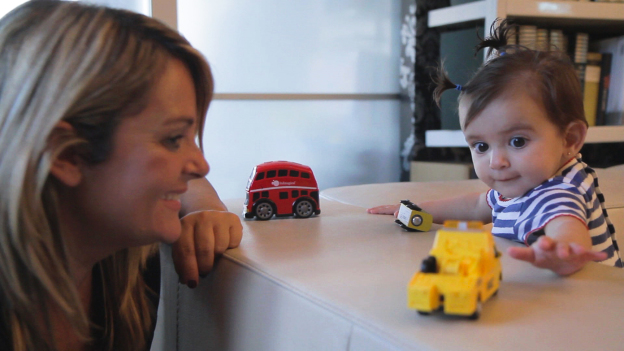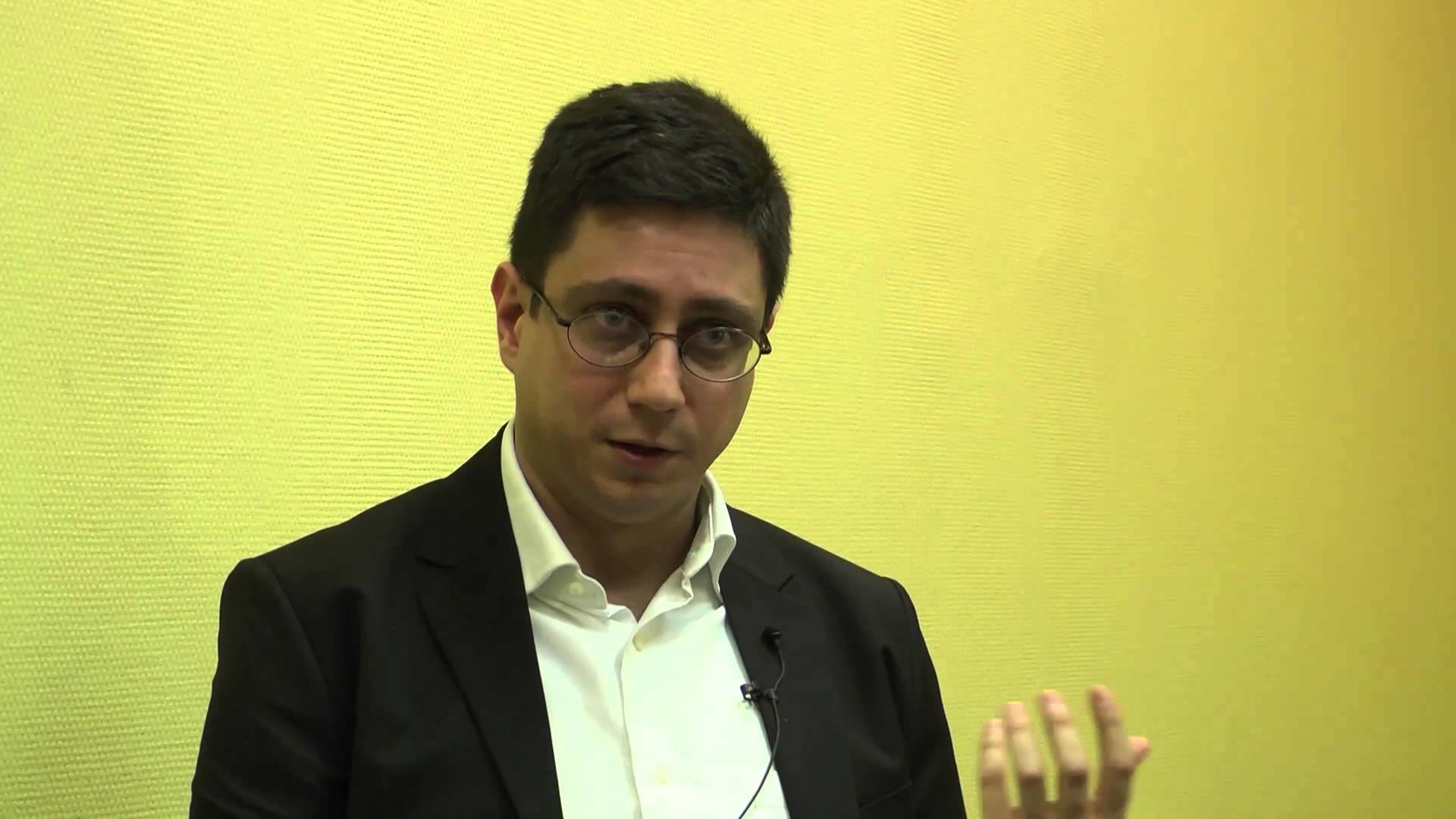“The ability and motivation to follow another’s line of regard and to point by age 0;10 to 0;11 gives infants an advantage in the word learning game that has measurable effects through their second year”.
Brooks & Meltzoff, 2008
Gaze following
Gaze following is the ability to tell where someone is looking by observing the direction of their eyes and estimating their line of regard. This ability undergoes considerable development in the first year of life. From three months, infants can alternate their gaze between a caregiver’s eyes and the thing they are looking at in simple experimental contexts. However, it takes several months to perfect this skill and it is not until about nine months that children are aware that people intend to look at things. With this insight, babies become able to use gaze following as a means of finding out what other people are interested in.
Babies learn that following gaze can be a good way of finding out what people are paying attention to.
Adults often help their infant to follow their gaze by producing other cues, for example, pointing to the object, saying ‘Oh look!’. In responding to these cues, and identifying the object of the adult’s attention, babies make their first steps into joint attentional episodes. They also start to understand communicative intentions. For these reasons, the ability to follow gaze is seen as a fundamental milestone in communicative development.
Children learn new words during episodes of joint attention.
Being able to assess what people are looking at when they are talking is a great help to word learning. If an adult looks at an object and names it, then a child who can follow their gaze will have a far greater chance of learning something about this word. It isn’t until around 18 months that children readily look up from what they are doing to follow another person’s gaze and learn a new word in this way.


